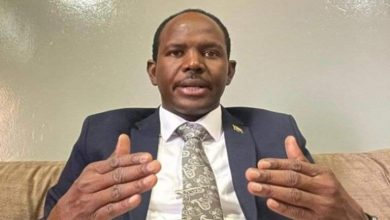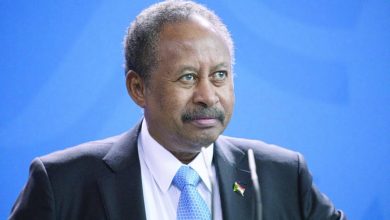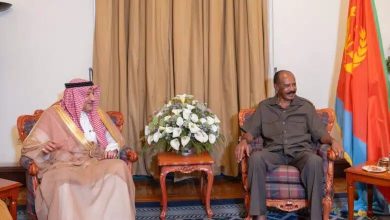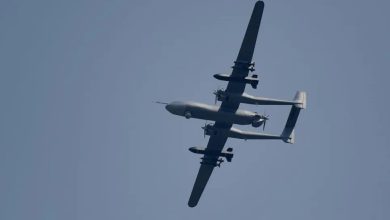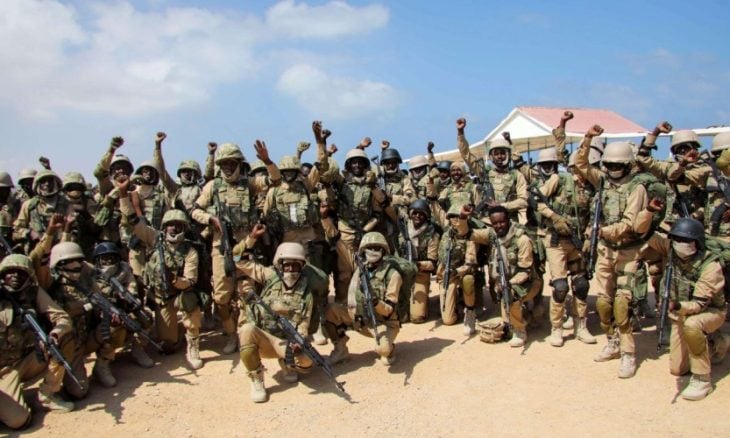
Sudan Events – Agencies
The London-based “Middle East Eye” website published a report by Ragıp Soylu stating that the United Arab Emirates has deployed an Israeli-made radar system in Somalia under a secret agreement made by Said Abdullahi Deni, President of the semi-autonomous Puntland region, to manage the Bosaso airport without parliamentary approval.
The report said the military radar in Puntland was installed to protect Bosaso airport from potential Houthi attacks coming from Yemen.
Satellite images revealed the installation of an Israeli-made ELM-2084 3D multi-mission electronically scanned radar system at the airport.
The military radar in Puntland was installed to protect Bosaso airport from potential Houthi attacks from Yemen.
Open-source data shows that the UAE is increasingly using Bosaso airport to supply Sudan’s Rapid Support Forces (RSF) with military equipment.
Earlier this year, Sudan filed a lawsuit against the UAE at the International Court of Justice, accusing it of supporting genocide through its ties with the paramilitary RSF.
A regional source said: “The UAE installed the radar after the RSF lost most areas of the capital Khartoum,” adding that “the radar’s purpose is to detect threats from drones or missiles and provide early warning, especially from possible Houthi attacks targeting Bosaso from abroad.”
The radar was reportedly deployed at the airport late last year, though Middle East Eye was unable to independently verify the claim. A second source stated that the UAE uses Bosaso airport daily to support the RSF, with large cargo planes regularly arriving to load weapons and ammunition — sometimes up to five large shipments at once. Middle East Eye requested a comment from the UAE’s Ministry of Foreign Affairs.
When contacted about these claims, Puntland State Minister for Presidential Affairs Abdirahman Abdullahi Abdinur refused to comment and instead posted mocking images ridiculing Somali President Hassan Sheikh Mohamud and Turkish President Recep Tayyip Erdoğan.
The radar aims to detect drone or missile threats and provide early warning.
Two separate Somali sources claimed that Puntland President Deni did not seek approval from Somalia’s federal government or the Puntland parliament for the arrangement.
Puntland is a de facto autonomous entity within Somalia.
A Somali source familiar with the matter said: “This is a secret deal, and even the highest levels of the Puntland government, including the cabinet, are unaware of it.” He added that “the Somali national government’s silence on the matter is puzzling.” The source also pointed to reports of Colombian soldiers being brought to Bosaso airport for redeployment to Sudan, although it’s unclear who issued their visas, as Mogadishu had no role in the arrangements.
The UAE has strong ties with the Somali government, offering support and training its troops to combat insurgent groups like al-Shabaab. It has also been active in Puntland, which is geographically close to Yemen and the UAE.
The UAE has trained forces in Puntland to combat piracy. Deni is seen as pro-UAE due to the financial support he receives, which strengthens his political ambitions. The source added: “There will be presidential elections in 2026, and he needs all the support he can get to win national votes.”
Salim Said Salim, a regional expert and executive director of the SIDRA Institute in Puntland, noted that despite social media reports and satellite images, neither Deni nor his administration have commented on the radar’s presence. He added: “This silence suggests the claims are true,” saying he was not surprised by the development given Deni’s long-standing ties with the UAE. Salim also noted that Mogadishu likely chose not to antagonize the UAE and preferred to remain silent on the UAE’s military activities in Puntland.
He said: “President Hassan Sheikh Mohamud relies on UAE support to fight al-Shabaab and pursue peace in the country. It makes sense that such matters are dealt with behind closed doors.”
Mohamud’s government has recently come under significant pressure, with al-Shabaab making gains near Mogadishu. There’s also growing opposition to his leadership due to the clan-based nature of Somalia’s political system. Mohamud has proposed shifting from a clan-based electoral system to a one-person, one-vote system, but this suggestion has faced resistance from prominent politicians and sparked controversy.
The UAE is also active in the breakaway state of Somaliland, where it is making major investments — a move that has angered Mogadishu. Somali Foreign Minister Ahmed Moallim Fiqi stated over the weekend that his government had delivered a message to the UAE urging Abu Dhabi to stop dealing with Somaliland President Muse Bihi Abdi as if he were a head of state.
